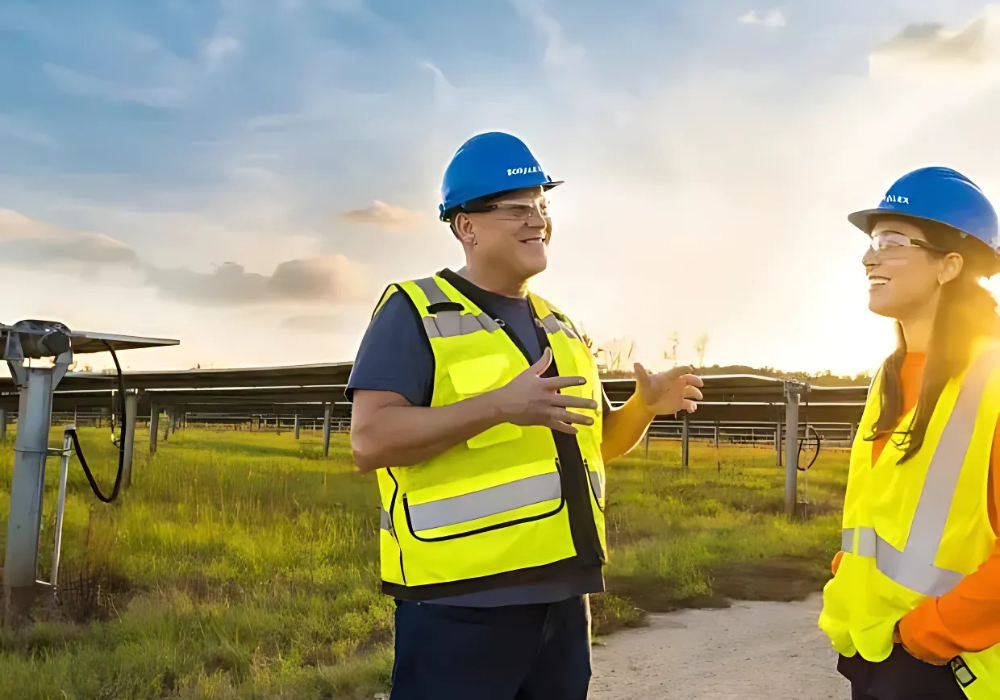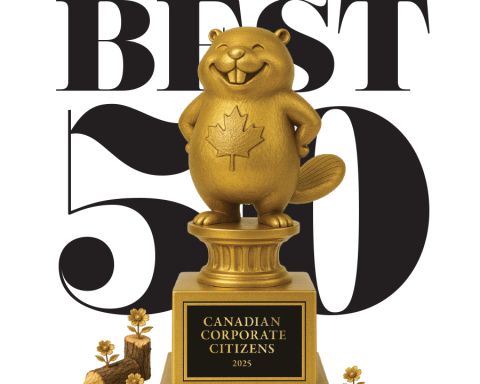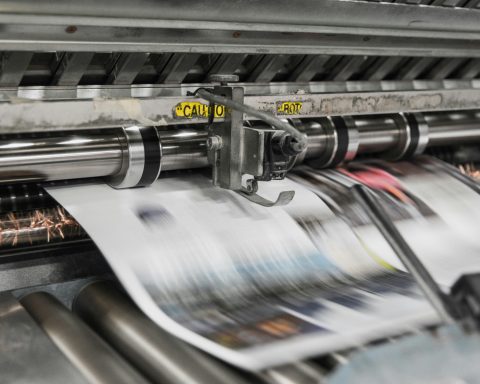At a time when sustainability efforts are under attack, renewable-energy company Boralex Inc. is forging ahead with plans to increase diversity and become net-zero across its value chain by 2050.
The Kingsey Falls, Quebec–based company says its strategy is just as much about business as doing the right thing for people and the environment. Boralex president and CEO Patrick Decostre says the company’s approach to corporate social responsibility (CSR) helps it diversify its shareholder base, reduce risk and attract a larger pool of investors, including impact investors.
“For us, and a lot of companies, sustainability is essentially a question of risk management,” says Decostre, who took the top job in late 2020. Since then, he’s been on a mission to accelerate the company’s growth in the wind, solar and storage sectors while optimizing its hydroelectric facilities. The company exited fossil fuels in 2021 after selling its last natural gas power plant in France.
These efforts have paid off, helping to propel Boralex to the top spot in the Best 50, Corporate Knights’ flagship ranking of corporate citizenship in Canada. Boralex was ranked 15th last year, 21st in 2023 and 23rd in 2022.
Boralex has made several adjustments in recent years to integrate sustainability into its business strategy. “It’s the way to manage correctly all the different risks around us, and not just financial risk,” Decostre says. “We have stakeholders like customers, communities, local municipalities and states who want us to be sustainable because we’re investing for the very long term.”
To demonstrate its commitment to achieving net-zero across its Scope 1, 2 and 3 operations, Boralex hired external experts a few years ago to assist its team in modelling greenhouse-gas-reduction scenarios. The aim was to have its targets approved by the Science-Based Targets initiative (SBTi), a leading science-backed framework for companies to align their emission-reduction efforts with the Paris Agreement.
Boralex received its SBTi nod in August 2024, making it one of the few companies in the renewable-energy sector to earn this approval.
Boralex focuses on various renewable-energy sources – including wind, solar, hydroelectricity and energy storage – across North America, Europe and the United Kingdom. Boralex was founded by a group of businessmen in 1982. In 1990, the Quebec-based Cascades Inc. acquired the company as part of its foray into the energy sector and commissioned a natural gas co-generation plant in Kingsey Falls. Boralex went public in 1997. Cascades sold its stake in Boralex over the years and exited the business in 2017. Today, Boralex’s largest shareholder is Caisse de dépôt et placement du Québec. The Kingsey Falls natural gas plant was sold in 2012, followed by the facility in France.
Now, the company operates 103 wind farms, 13 solar energy facilities, 15 hydroelectric power stations, and two storage units with an installed capacity of 1,085 megawatts in Canada, 734 MW in the United States, 106 MW in the United Kingdom and 1,343 MW in France.
For us, and a lot of companies, sustainability is essentially a question of risk management.
— Patrick Decostre, Boralex president and CEO
The company’s entire electricity sales revenue comes from renewable-energy production. However, Boralex acknowledges that its activities are not entirely impact-free, and its projected growth may also increase its indirect emissions, primarily along its value chain, which accounts for 96% of its total greenhouse gas emissions.
Decostre says the company is working on sustainable procurement practices and other measures to convince suppliers and partners to commit to reducing their own emissions. “We need to continue to work with the supply chain to incentivize our suppliers to have their own Scope 1 and Scope 2 targets and have innovation and develop technology and things which are better for the environment,” he says.
The company also began linking sustainability indicators, including emission reduction, female representation in management positions, and occupational health and safety, to short-term compensation schemes for senior executives in recent years.
In its 2024 CSR report, the company stated that 36% of its board members were women, one member was from an ethnically diverse background, and one member was Indigenous. It stated that board resignations and nominations in 2024 resulted in female representation falling short of the target of 40% but that efforts are being made to address the gap when a seat becomes available. The company reported that female representation across the entire organization was 34%, up from 31% in 2021, a result of specific talent-management measures implemented in recent years.
The company’s occupational health and safety performance also improved in 2024, with a total recordable incident rate of 0.42 for the company as a whole.
Decostre says the investments Boralex has made over the years to gain market share, while also improving its environmental, social and governance track record across the value chain, are paying off.
Even as some companies are walking back environmental initiatives and diversity, equity and inclusion efforts that have been denounced by U.S. President Donald Trump, Boralex plans to continue investing in sustainability and its targets.
To Decostre, it’s just good business. “We’re investing for the very long term, and we need to be a good citizen locally and globally,” he says.
Click here to find out what other companies made the 2025 Best 50.
Brenda Bouw is a freelance writer and editor based in Vancouver.





